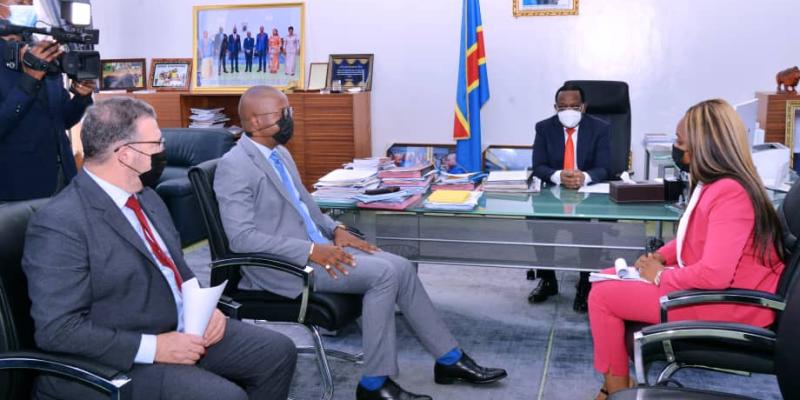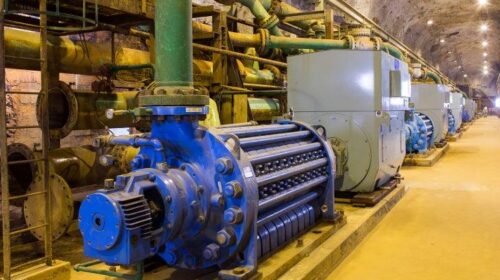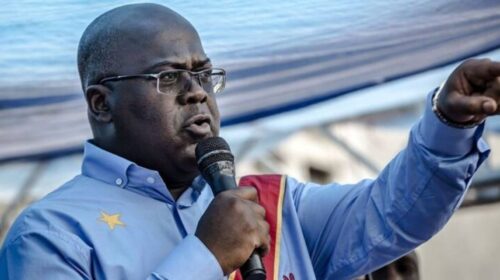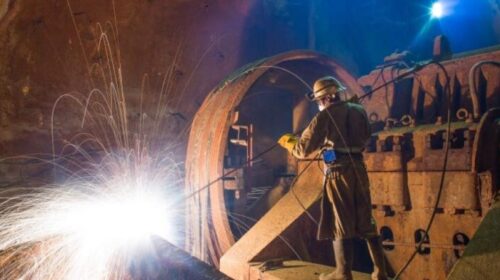A new partnership framework between the World Bank and the Democratic Republic of Congo
Jean-Christophe Carret, Director of World Bank Operations for the Democratic Republic of Congo, Angola, Burundi and Sao Tome & Principe was received this Friday, February 05, 2022 by the President of the Senate Modeste Bahati Lukwebo. On the menu of exchanges between the two personalities, is the new partnership framework between the World Bank and the Democratic Republic of Congo.
The representative of the World Bank said that the new partnership framework between this international financial institution and the DRC will soon be presented in Washington.
According to the representative of the World Bank, the increase in the budget for the DRC is justified by the improvement in governance observed since the accession of the current Head of State to the highest office. This envelope will be 1 billion US dollars per year, triple what the DRC received per year, and this for a period of 6 years.
“I came today to meet the President of the Senate to announce to him that we were soon going to present the new partnership framework between the Democratic Republic of Congo and the World Bank Group for the next six years to come, it is a important moment because we are defining the amounts that will be invested in the country and how they will be allocated between the different sectors, so that was the purpose of the meeting. The President found that the themes that had been retained for this strategy were themes of the utmost importance for the country and as a result of which he said he was completely satisfied with what we had presented”, declared Jean-Christophe Carret to the press after of his interview with Modeste Bahati Lukwebo.
And to continue:
“This calendar year, we are going to present two new infrastructure projects to the board of directors, a first project which will allow you to continue, to start for certain segments to pave national roads 1 and 2, the one that crosses Kasai, that then which goes up along the great lakes of Bukavu to Bunia. The other major infrastructure project which is arriving this year is a project to accelerate, to support the vision of the Head of State Félix Tshisekedi the access to water and electricity in most major cities in the Democratic Republic of Congo”.
The World Bank also proposes that these funds be used to help the Congolese population to access basic social services, in particular water and electricity. Training and support for the private sector are also among the priorities of the World Bank.
“Using it is a bit of a novelty not only the public money that we bring in on behalf of the government but also the private money. So to set up public private partnerships because it’s obvious to everyone the world that given the vastness of the country, the size of the population, you cannot finance all the infrastructure with public money alone, so you have to attract private money and that’s one of the things what we have done at the World Bank is to use part of the funds that we make available to the Republic to reassure private investors. on private money,” said Jean-Christophe Carret,Director of World Bank Operations for the Democratic Republic of Congo, Angola, Burundi and Sao Tome & Principe.
Modeste Bahati Lukwebo, reports the communication unit of the Senate, reassured the representative of the World Bank on the determination of the Head of State to improve the living conditions of the population by carrying out actions at the base with the development program of the country’s 145 territories. Modeste Bahati Lukwebo called for the strengthening of control institutions such as Parliament, the Court of Auditors and the IGF.
Nicolas Kazadi, Minister of Finance, indicated that the volume of the portfolio of projects financed by the World Bank continues to increase. It has increased, he said at the 38th meeting of the Council of Ministers, from an average of 2 to 3 billion USD until 2019 to more than 5 billion USD currently. He added that taking into account the entry into force of the 20th replenishment of the resources of the International Development Association (IDA), in July 2022, this average will be increased to around USD 7 billion.
IDA is a successful platform for mobilizing resources from international donors and capital markets to support well-targeted national programs and development spending. The goal is to provide the poorest countries with the concessional financing and donations they so desperately need at this time. Additional financing of USD 700 million to USD 1 billion, to be committed before the end of June 2022, has also been announced for the DRC, the minister added.
Nicolas Kazadi specified that “this new record of World Bank commitments requires efforts to accelerate disbursements which are low”.
![]()





